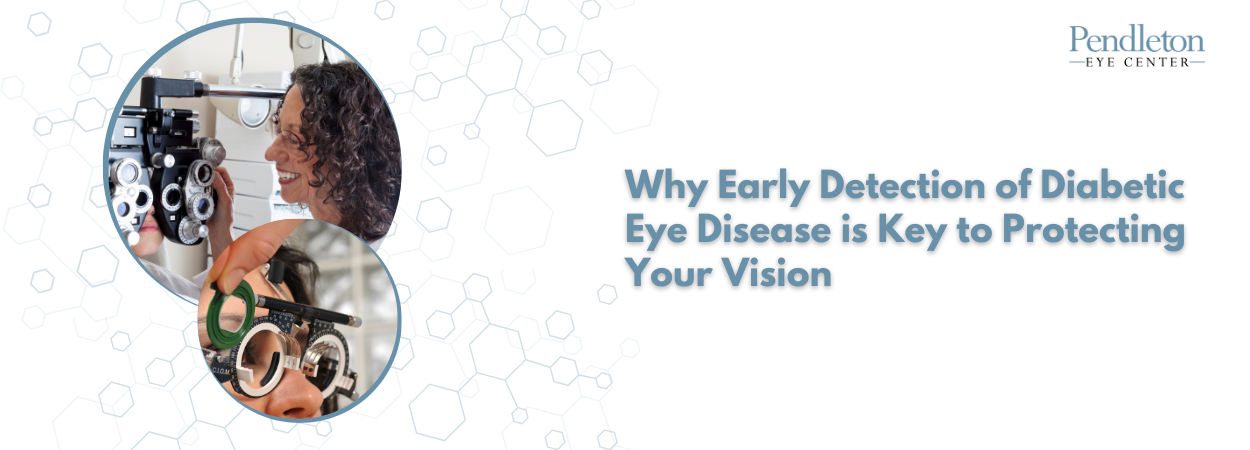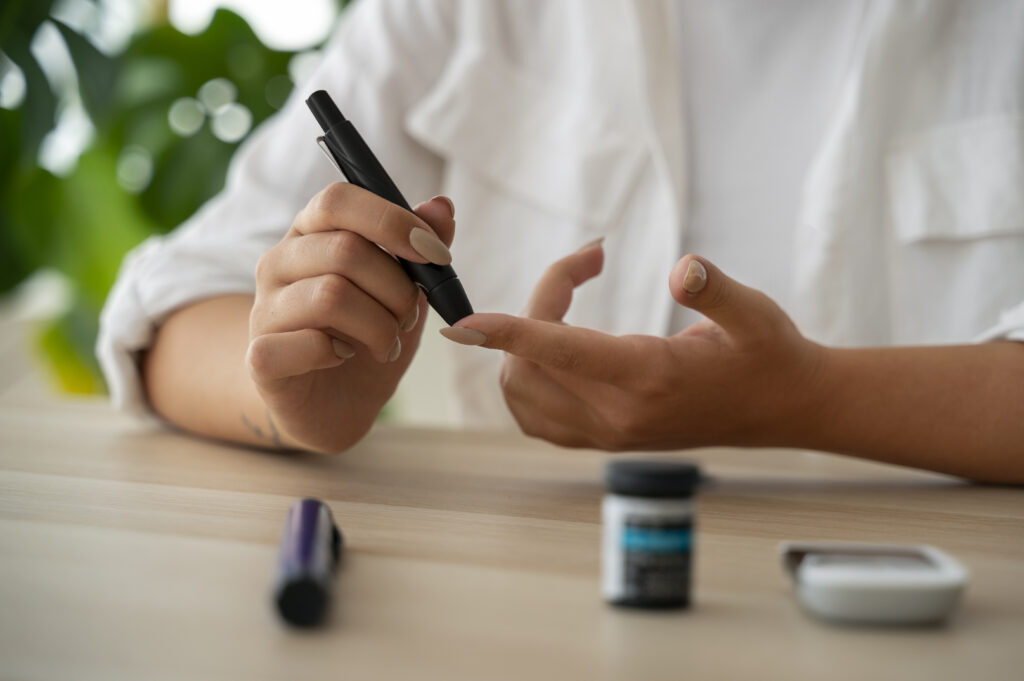Diabetic Retinopathy, Patient Education, Retina

Living with diabetes involves managing more than just blood sugar levels—it also means keeping a close eye on your eye health. Diabetic eye disease, a group of conditions that can affect people with diabetes, is a leading cause of vision loss worldwide. But here’s the good news: early detection and proper care can go a long way in protecting your eyesight.
Understanding Diabetic Eye Disease
Diabetic eye disease includes conditions like diabetic retinopathy, diabetic macular edema (DME), cataracts, and glaucoma. The most common of these is diabetic retinopathy, which happens when high blood sugar damages the tiny blood vessels in the retina—the light-sensitive tissue at the back of your eye. This can lead to vision problems and, in severe cases, blindness. In its early stages, diabetic eye disease often has no symptoms. That’s why regular eye exams are so important.
Why Early Detection Matters
Detecting diabetic eye disease early is crucial to protecting your vision. Regular comprehensive eye exams, including dilated retinal evaluations, help ophthalmologists catch the earliest signs of the condition, often before symptoms appear. Cutting-edge imaging tools like optical coherence tomography (OCT) and fundus photography can reveal even the smallest changes in the retina and macula.
Research confirms that prompt treatment greatly lowers the risk of severe vision loss. Early interventions, such as laser therapy, and anti-VEGF injection, can effectively slow or halt the progression of diabetic retinopathy and macular edema.

Steps to Protect Your Vision
- Schedule Regular Comprehensive Eye Exams
Don’t skip your annual eye check-up, even if your vision seems fine. Comprehensive eye exams, including dilated retinal evaluations, allow your ophthalmologist to spot the earliest signs of diabetic eye disease. These exams are quick, painless, and could save your vision. - Control Your Blood Sugar and Blood Pressure
Managing your overall health goes hand-in-hand with protecting your eyes. Keep your blood sugar levels steady, and work with your healthcare team to control your blood pressure and cholesterol. These factors can directly impact the health of your eyes. - Act Quickly if You Notice Changes
Blurry vision, floaters, or flashes of light in your vision could be signs of diabetic eye disease. Call your eye doctor right away
if you notice anything unusual.
Your eyes are your windows to the world, and they deserve care and attention. By taking proactive steps and partnering with an experienced eye doctor, you can protect your vision for years to come. Call Pendleton Eye Center at (760) 758-2008 or click here to schedule your eye exam. Early detection could make all the difference!






